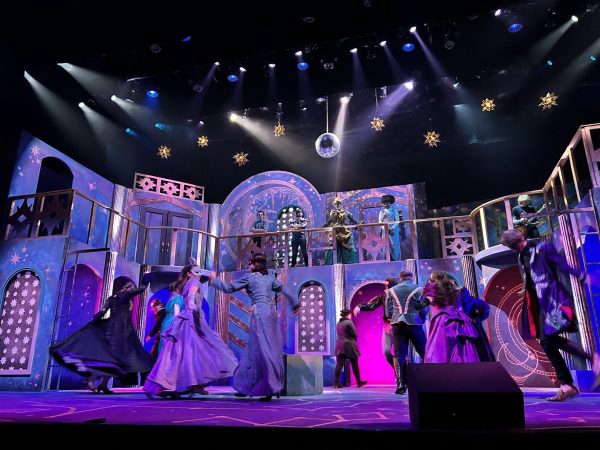Renowned author visits UNCW
Students, faculty and community members listened to renowned author Joyce Carol Oates during a question and answer session and reading at UNCW Friday, Oct. 30.
Oates began writing when she was 14 and started winning short story contests as a teenager. According to Oates, she comes from a working class family that was very tight-knit. She’s written over 50 novels and numerous short stories. Currently, she teaches undergraduate students at Princeton.
I really like to teach in the workshops,” said Oates. She explained how the workshops helped one of her students to see where something she thought was very clear wasn’t. “If she [the student] had been on her own, just writing and writing and writing, she never would have gotten that reality check,” Oates said.
Oates identifies herself as a realist. During the question and answer session, she proved her self-assessment correct. Oates was asked whether she ever had a backup plan in college. She responded, “I always wanted to be a teacher. The concept of a professional writer didn’t exist in my life. The writing career is extremely elusive and vaporous. I would never, even now, suggest it to any of my students. It’s just asking for trouble.”
Oates gave a reading of her story, “Pumpkin Head,” at Kenan Auditorium in the evening. Appropriate so close to Halloween, the story itself has a suspenseful feel and spooky moments. According to Oates during the question and answer session, the “Pumpkin Head” story, while not literally autobiographical, is emotionally autobiographical. It is fiction and has a “fictitious ending” but was set in Oates’ own house.
In the question and answer session, Oates answered many questions about her writing style and methods. She said she used to write her novels “right out in the white heat of transcendence, like a dream almost.”
Now, I write differently. I’m not sure if it’s better or worse. I write in scenes and parts, so I’m basically working like I’m in a mosaic,” said Oates. “I love to write dialogue, dramatic monologues, and things like that.”
She also talked about her characters, saying that most are “invented or parts of my own psyche that were just buried.” When discussing how her characters have changed from her earlier writing to now, Oates said, “I think they’re changed very much. I could write forever because the human personality is limitless.”
Oates referred to great works of literature multiple times in her answers. She mentioned “Ulysses,” “The Iliad” and “The Odyssey,” “The Scarlet Letter,” Hemingway, Poe, and more.
I’m always reading. I don’t think one would be able to write very good prose if you’re not reading,” said Oates.
Peter C. Baker, a Master of Fine Arts student who attended the question and answer session said, “I was impressed. She was a pro. I thought she did a good job.”
However, according to Baker, he was disappointed in the questions and thought that people asked questions they already knew the answer to, just to hear it from someone famous. He felt they didn’t ask enough about her work. Many questions were about Oates’ writing process, perhaps because National Novel Writing Month (NaNoWriMo) begins Nov. 1.
Another Master of Fine Arts student who attended the question and answer session, Mitchell Mcinniss said, “I thought it was interesting.” He felt that Oates was “very charming, and her command of literature is also very impressive.”
Indeed, the room felt comfortable and at ease. Several times, Oates would made an amusing comment, prompting laughter from the audience. For instance, when asked about writing young adult novels, Oates said that, after writing four they began to become more and more like adult novels, so “Maybe I’ll write one about five cats or something. That can’t possibly be an adult novel.”
At the reading, Oates said, “I’m in a really giddy and happy mood this evening,” and it showed.











